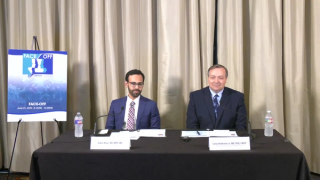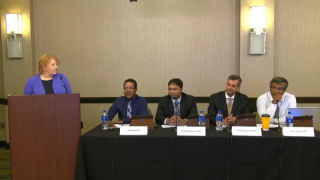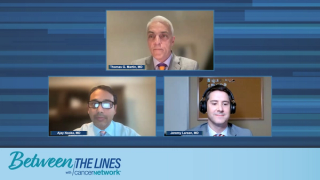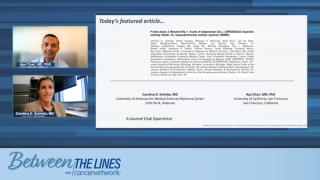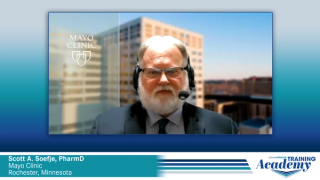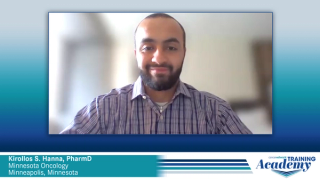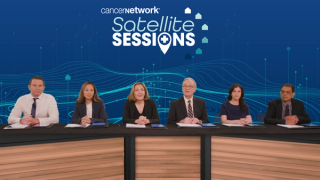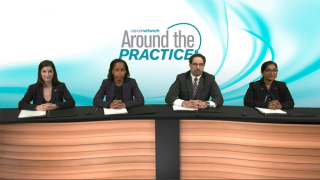
Multiple Myeloma
Latest News
Latest Videos

CME Content
More News

Patients with heavily pretreated relapsed/refractory multiple myeloma may now receive treatment with ciltacabtagene autoleucel following its approval by the FDA.
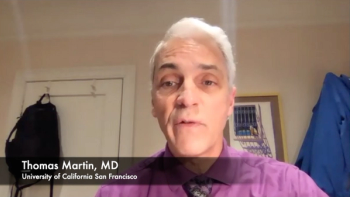
Thomas Martin, MD, spoke about the importance of the approval of ciltacabtagene autoleucel to treat patients with pretreated multiple myeloma.

Findings from an analysis assessing diverse participation in multiple myeloma FDA drug approval trials highlighted a significant deficit of Black and Hispanic patients.
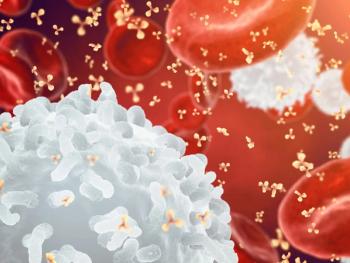
Flow-MRD Sensitive and Appropriate Tool for Evaluating Responses in Newly Diagnosed Multiple Myeloma
A substudy of the European‐Myeloma-Network‐02/Hovon‐95 trial suggests flow cytometry–based monitoring of minimal residual disease is effective for longitudinal evaluation of responses in patients with multiple myeloma.

Consolidation therapy with bortezomib, lenalidomide, and dexamethasone plus lenalidomide maintenance improved progression-free survival in patients with newly diagnosed multiple myeloma.

Prescription of an appropriate duration of antivirals for the prevention of Varicella-Zoster virus reactivation in patients with multiple myeloma has notable importance, with experts emphasizing a need to adhere to treatment guidelines.

It is important to tap into interventions that can mitigate a fear of cancer recurrence in the partners of multiple myeloma survivors in addition to improving family hardiness and social support in order to aid in patients' psychological adjustment and wellbeing.
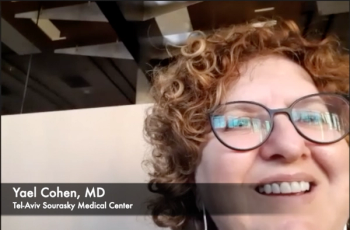
Yael Cohen, MD, sat down with CancerNetwork® to discuss how the multiple myeloma space is entering into an era of CAR T-cell therapy.

Yael Cohen, MD, discusses safety data from a clinical trial assessing the use of ciltacabtagene autoleucel in lenalidomide-refractory multiple myeloma.
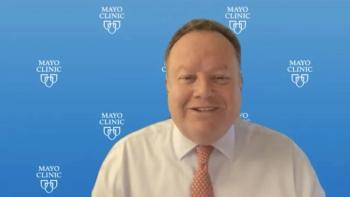
CancerNetwork® spoke with Rafael Fonseca, MD, about future efforts to compare use of daratumumab-containing regimens as either frontline or second-line therapy in patients with multiple myeloma that are transplant ineligible.

Improved progression-free survival was observed when treating patients with relapsed/refractory multiple myeloma with melphalan flufenamide plus dexamethasone compared with pomalidomide plus dexamethasone.

A retrospective study did not find any associations between survival of older patients with multiple myeloma and pre-diagnosis depressive symptoms and mental health-related quality of life.

In an interview with CancerNetwork®, Yael Cohen, MD, discusses how treatment with ciltacabtagene autoleucel resulted in a high rate of minimal residual disease negativity in patients diagnosed with lenalidomide-refractory multiple myeloma.
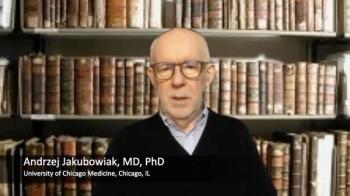
Looking forward, Andrzej Jakubowiak, MD, PhD, anticipates CAR T-cell therapy with ciltacabtagene autoleucel will establish its place across various indications for multiple myeloma.

Yael Cohen, MD, sat down with CancerNetwork® to spotlight a number of promising treatments that are under investigation for patients with heavily-pretreated multiple myeloma.
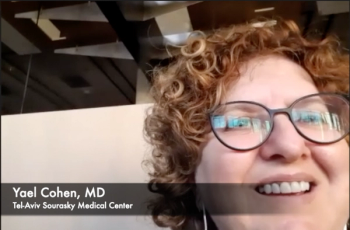
CancerNetwork®, sat down with Yael Cohen, MD, to discuss the research that lead up to the phase 2 CARTITUDE-2 trial, examining the use of ciltacabtagene autoleucel for those with lenalidomide–refractory multiple myeloma

CancerNetwork® spoke with Rafael Fonseca, MD, about findings from a simulation using real-world data sets to compare the utility of daratumumab-containing regimens as either frontline or second-line therapy.

In an interview at the 2021 ASH Annual Meeting, Andrzej Jakubowiak, MD, PhD, dives into response outcomes in different patient subsets of the phase 1/2b CARTITUDE-1 trial of ciltacabtagene autoleucel for relapsed/refractory multiple myeloma.

A study conducted by Mount Sinai investigators determined that the co-occurrence of t(4;14) and 1q gain was effective at identifying newly diagnosed patients with multiple myeloma who were at high risk of relapse.
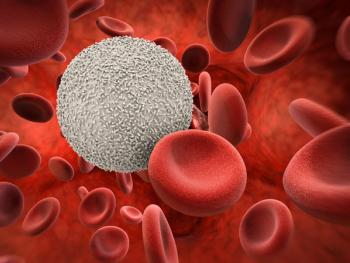
From 2003 to 2016, investigators noted that incidence of multiple myeloma varied by racial and ethnic group, as well as sex.

A triplet combination of belantamab mafodotin-blmf plus pomalidomide and dexamethasone yielded a manageable safety profile in a population of patients with relapsed/refractory multiple myeloma.

In an interview at the 2021 ASH Annual Meeting, Andrzej Jakubowiak, MD, PhD, describes how CAR T-cell therapy for patients with heavily pretreated myeloma has the potential significantly impact response and survival outcomes.

In an interview at the 2021 ASH Annual Meeting, Andrzej Jakubowiak, MD, PhD, talks about daratumumab-based quadruplet therapies being evaluated in clinical trials and the potential impact they’ll have on the multiple myeloma treatment landscape.

A synthesis of P-values across 16 studies in different global regions found that socioeconomic status continues to be a significant prognostic factor of overall survival for patients with multiple myeloma.

Patients with relapsed or refractory multiple myeloma may benefit from treatment with teclistamab, for which a biologics license application was submitted to the FDA.





